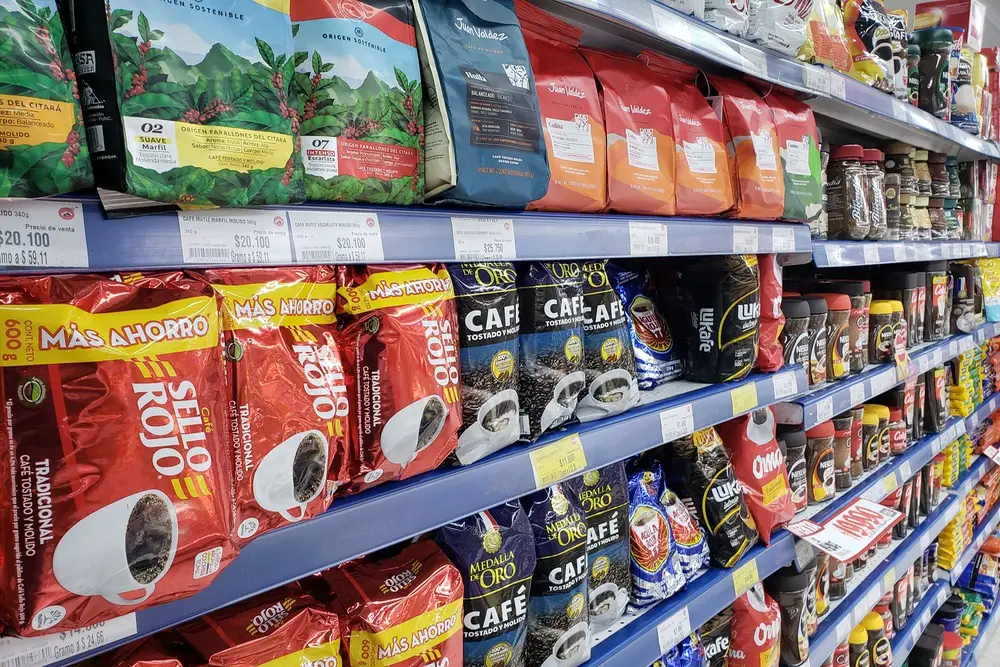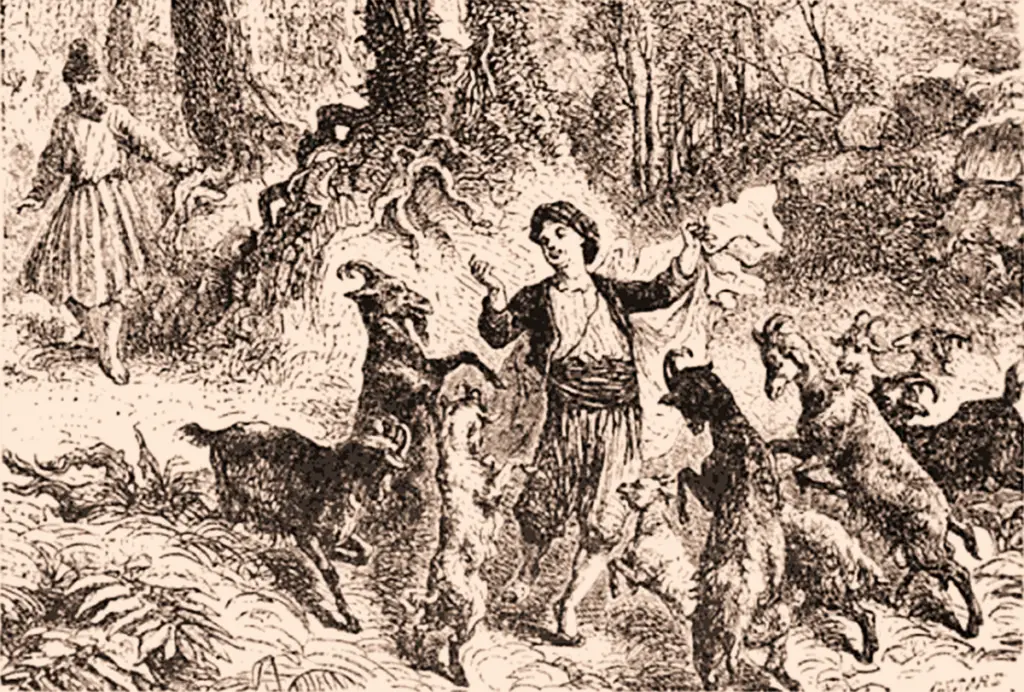Have you ever wondered how much coffee you can consume without harming your body?
Table of Contents
What is caffeine?
Caffeine is a colorless, bitter-tasting organic compound that has a number of properties. Caffeine is mainly found in coffee. The substance is particularly popular because of its invigorating effect.
How much caffeine is too much?
Although sensitivity to caffeine is individual, there are some guidelines that can be used.
What is the recommended daily dose of caffeine based on age?
Children under 12: None
Children from 13 to 18 years: 100 mg per day (1 cup of espresso)
Healthy adults: 300 – 400 mg per day (5 cups of espresso)
Pregnant women: 100 – 200 mg (2 cups of espresso)
What are the symptoms of a caffeine overdose?
The following symptoms or side effects may occur with excessive caffeine consumption.
Anxiety states
Caffeine has a stimulating effect on the body that can lead to a sharpening of the senses and an increase in adrenaline hormones, which in combination can produce anxiety.
Palpitations
Caffeine stimulates the nervous system, so increasing caffeine intake can lead to an increase in heart rate.
Diuresis
Caffeine increases blood flow through the kidneys and dilates blood vessels, causing the kidneys to produce more waste and thus increasing the frequency of urination.
Insomnia
Caffeine inhibits the activity of adenosine, a neurotransmitter that promotes the sleep cycle as it is a natural brain relaxant. For example, high caffeine consumption can reduce overall sleep time or the ability to fall asleep.
Gastrointestinal complaints
Caffeine stimulates bowel movements, but in high doses it can cause stomach upset.
Headache
Too much caffeine can overload the receptors in the brain and lead to headaches and migraines.
Elevated blood pressure
High caffeine consumption causes the adrenal glands to release more adrenaline, thereby increasing blood pressure. You should be aware that high blood pressure can damage arteries over time, increasing the risk of heart attack or stroke.
Hallucinations
The high adrenaline levels produced by too much caffeine can lead to hallucinations.
Heartburn and reflux
Excess caffeine contributes to gastroesophageal reflux.
Dehydration
Frequent urination and diarrhea, which occurs with high caffeine consumption, can disrupt the body’s fluid balance due to insufficient absorption of vitamins, minerals and water.
Confusion
Too much caffeine can lead to confusion and stuttering.
Nervousness
High consumption of caffeine stimulates hormones, which leads to nervousness and restlessness in the body.
Muscle contractions and spasms
Too much caffeine can lead to lack of coordination and muscle cramps.
Seeks
Caffeine can become an essential chemical for the body when consumed in large amounts.
Allergies
High caffeine consumption can trigger allergies such as hives.
Stomach ulcers
Caffeine can speed up the stomach’s emptying process, causing the acidic stomach contents to pass into the small intestine faster than normal, leading to ulcers or lesions.
Coma
Too much caffeine can trigger coma or convulsions.
Death
Consuming too much caffeine can cause death, although this is very rare.
Products containing caffeine
There are several foods and drinks that contain caffeine:
- Black or green tea
- Coke
- Pepsi Cola
- Chocolate
- Sweets (brownies, pudding, fudge, chocolate chip cookies)
- Energy drinks like Red Bull
- Coffee liqueurs
Here’s how much caffeine some types of coffee contain:
Size in ml: 100
Caffeine mg: 30
Size in ml: 100
Caffeine mg: 1
Drip coffee
Size in ml: 100
Caffeine mg: 40
Size in ml: 100
Caffeine mg: 1
Size in ml: 30
Caffeine mg: 94
Decaffeinated espresso coffee
Size in ml: 30
Caffeine mg: 0
Decaffeinated means no caffeine?
Decaffeinated coffees still contain some caffeine, but have significantly less caffeine than regular coffee.
Medications that should not be mixed with caffeine
Here are some drugs that should not be mixed with caffeine as they can be dangerous to your health.
Theophylline: This drug has effects similar to caffeine, so when mixed directly with caffeine it can cause heart palpitations and nausea.
Echinacea: Mixing caffeine with this herbal supplement, commonly used to prevent infections, can increase blood levels of caffeine and thus its negative effects.
Ephedrine: Taking caffeine at the same time as this drug, which is used in decongestants, can lead to increased blood pressure, seizures, stroke, or heart attack.
Is caffeine powder dangerous for health?
Caffeine powder contains a higher dose of caffeine than a cup of coffee or an energy drink. According to the US Food and Drug Administration (FDA), a single teaspoon of caffeine powder can equal the equivalent of 28 cups of coffee.
Because of this, caffeine powder can cause more serious health problems than too many cups of coffee or tea.
How can a caffeine overdose be treated?
Caffeine overdose can be treated by administering activated charcoal if it has not yet entered the gastrointestinal tract. However, if the caffeine has already entered the body, gastric lavage or simply a laxative is usually used to flush the substance out of the body.
Another effective solution is to eat foods that increase the production of CYP1A2, an enzyme that works in the liver to metabolize chemicals that enter the body from outside.
According to the National Cancer Institute of the United States, there are some plants that produce this enzyme, which we mention below:
- Cauliflower
- Broccoli
- Kale
- Watercress
- Cabbage
- Turnip
- Arugula
- Green leafy vegetables
- Cauliflower
- Radish
What are the effects of giving up caffeine?
There are some changes your body can go through after giving up caffeine, so keep these in mind when making your decision.
Sleepiness
When caffeine is completely withdrawn, the body begins to exhibit states of apathy and also low energy levels.
Constipation
Caffeine promotes constant bowel movement, so skipping caffeine is likely to result in slower movement and therefore constipation.
Depressions
Stopping your caffeine consumption can leave you feeling unmotivated and sad for no apparent reason.
Headache
The lack of caffeine can lead to headaches or even migraines in some cases.
Nose problems
A runny or stuffy nose can occur when the body begins to sense the lack of caffeine in the body.
Cures for giving up caffeine
To alleviate the side effects of not caffeine, we recommend the following remedies.
Green tea
- It is one of the body’s greatest natural antioxidants.
- It can be consumed at any time.
- It promotes the elimination of free radicals, giving the body more vitality without being addictive.
Royal jelly
- A great source of energy that activates the body.
- Regenerates cells.
Cereals and Grains (Rice, Quinoa, Barley and Wheat)
- They are rich in potassium, zinc and magnesium and therefore have a high energetic value.
Yogurt
- Counteracts discouraging states by energizing the body.
Green vegetables (chard, spinach, cabbage and broccoli).
- Helps balance blood pH.
- Strengthening of the immune system.
- They contain a lot of iron, which increases energy in the body.
Milk with honey
- Provides calories and reduces the sweet cravings that come with giving up caffeine.
Sweets (ginger, peanut, coconut and cinnamon).
- Used to improve mood.
Citrus fruits
- Thanks to their high vitamin C content, they counteract the deficiency symptoms that can occur if you do without caffeine.
Seeds (pumpkin, sunflower, almonds, sesame).
- They increase alertness without harming the body.



